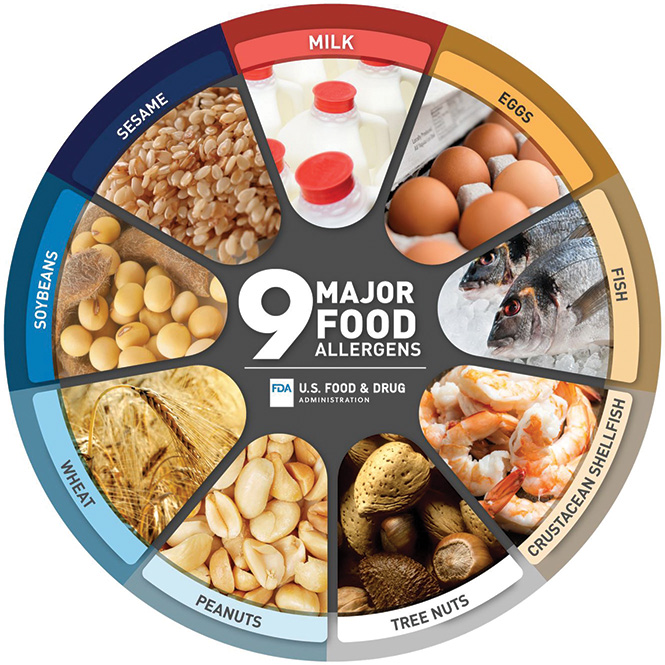Food Allergens: Then There Were Nine
Sesame has joined the list of major food allergens defined by law, meaning foods containing sesame are subject to mandatory federal labeling and manufacturing requirements.
That’s good news for the millions of Americans with food allergies, said Stephanie Leeds, MD, director, Pediatric Food Allergy Prevention Program at Yale New Haven Children’s Hospital (YNHCH), which helps families reduce the odds that their young children will develop food allergies. “We have known for a long time that the prevalence of sesame allergies was increasing,” she said.
The change went into effect January 1, 2023, because of the Food Allergy Safety, Treatment and Research Act (FASTER Act) signed into law in April 2021. Sesame joins eight other major food allergens: milk, eggs, fish, shellfish, tree nuts, peanuts, wheat and soybeans.
“Federal laws mandate that packaged food and food products are labeled clearly with the top food allergens for consumer awareness,” Dr. Leeds said. Consumers should check with the manufacturer if they are not sure whether a food product contains sesame.
Food allergies in general have become more prevalent in the United States and around the world in recent years, although it’s difficult to pinpoint a single reason, explained Dr. Leeds. “It’s likely a combination of reasons, from food processing and sanitation to food introduction.”
Sesame allergy symptoms are similar to those of any food allergy. “Symptoms can occur within minutes to two hours of food exposure,” Dr. Leeds said. “These include swelling, difficulty breathing and vomiting, all the way up to anaphylaxis, which is a potentially life-threatening allergic reaction.”
Dr. Leeds and Julie Flom, MD, both YNHCH pediatric allergists/immunologists, developed the Pediatric Food Allergy Prevention Program, the first of its kind in the country, to help families reduce the odds that their young children will develop food allergies. The program takes a proactive approach, starting as young as 4 months of age.
Dr. Leeds recommends introducing allergens into a child’s diet soon after starting solid food.
“Evidence shows that introducing allergens in the first year of life provides the greatest opportunity to reduce the development of food allergies,” said Dr. Leeds.

